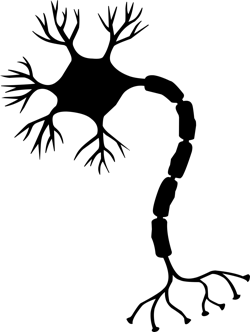The U.S. Food and Drug Administration (FDA) authorized marketing of a new device indicated for use as a short-term treatment of gait deficit due to mild to moderate symptoms from multiple sclerosis (MS), according to a news release from the agency.
The FDA said the device is intended to be used by prescription only as an adjunct to a supervised therapeutic exercise program in patients 22 years of age and older. The device, called Portable Neuromodulation Stimulator (PoNS), is a neuromuscular tongue stimulator that consists of a non-implantable apparatus to generate electrical pulses for stimulation of the trigeminal and facial nerves via the tongue to provide treatment of motor deficits.
MS is a disease that affects people differently as it causes a variety of symptoms – such as problems with walking and balance – that can interfere with daily activities but can usually be treated or managed. The most common walking problem is unsteady, uncoordinated movements (known as ataxia) due to damage to the areas of the brain that coordinate muscle balance. People with severe ataxia generally benefit from the use of a cane, walker, or other assistive device. Physical therapy can also reduce walking problems.
The PoNS device is a portable, non-implantable device that delivers mild neuromuscular electrical stimulation to the dorsal surface of the patient’s tongue. It consists of a controller and a mouthpiece that are connected to each other by a cord. The mouthpiece is held lightly in place by the lips and teeth and the control unit is worn around the neck during a patient’s visit with a therapist.
The FDA assessed the safety and effectiveness of the PoNS device through two clinical studies and a retrospective analysis of real-world data (RWD). In the first study, 20 patients with gait deficits due to MS participated in a randomized, double blind controlled trial where 10 patients used the PoNS device and the remaining 10 patients used a sham control device that did not deliver stimulation. The primary outcome measure was the Dynamic Gait Index (DGI) where the clinician scored an index of eight gait tasks. The DGI was assessed for a baseline, at two weeks, six weeks, 10 weeks, and 14 weeks. The results showed that the PoNS group on average achieved improvement in their DGI score of 7.95 at the end of the study, which was statistically significant and clinically significant, while the control group did not.
In the second study, the clinicians investigated the effects of the PoNS device with cognitive rehab and physical rehab in 14 patients with MS, who did not know whether they had the PoNS device or the sham control device, in a randomized controlled trial where seven patients used the PoNS device and the other seven used a sham device. Baseline evaluations included sensory organization tasks (SOT) and DGI scores. The PoNS device group showed a statistically significant improvement in SOT scores at 14 weeks compared to the baseline value. Analysis of DGI scores after 14 weeks showed no significant result.
The FDA reviewed the PoNS device through the De Novo premarket review pathway, a regulatory pathway for low-to moderate-risk devices of a new type, and it granted marketing authorization of the Portable Neuromodulation Stimulator to Helius Medical, Inc.

